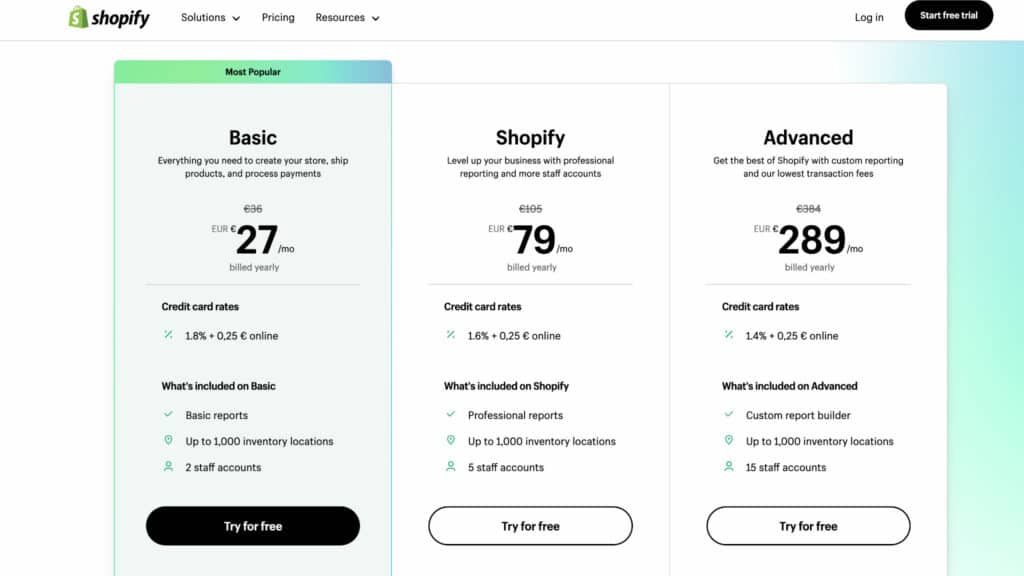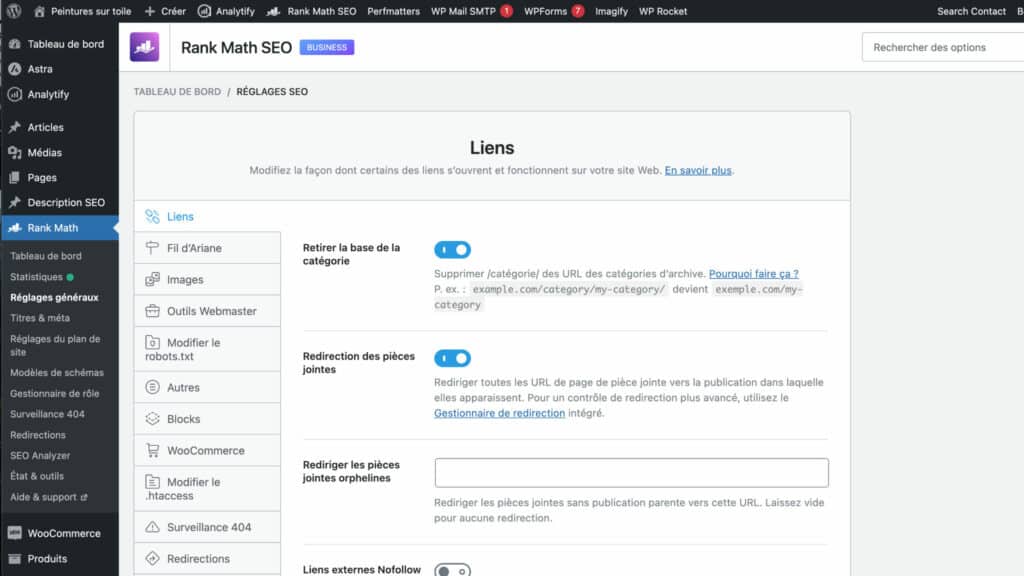When it comes to launching an online store, two of the most popular platforms are Shopify and WooCommerce.
Both CMS's offer a lot of functionality, however each has its own way of working, its own features and strengths, which makes it difficult for entrepreneurs to decide which option is best for them.
They both have large fan communities and have extensive site portfolios for you to review to help you make your choice. In this article, we'll explore the differences between Shopify and WooCommerce as well as an in-depth comparison of these two e-commerce CMSs to help you choose the platform that best meets your goals and business needs.
What are the main differences between these two systems?
It is necessary to make here a presentation of these two CMS. But first of all a little point on the concept of "CMS".
CMS: what is it?
A CMS (Content Management System) is a content management system, which is a software application that helps users create and manage digital content. The great advantage of using a CMS is that it makes it easy for users to create and maintain the Web without having to be a computer scientist or developer. There are several different types of CMS, each tailored to different needs:
- Open source CMS are free to use and give access to the source code so that developers can customize the features to their needs. You are in charge of hosting it.
- Self-hosted systems offer hosting, but give you less control over site design and functionality.
Shopify Overview
Shopify is an all-in-one e-commerce platform that has been helping businesses succeed since 2006. With a mission to make business better for everyone, Shopify provides the tools and resources needed to create an online store and manage sales. From marketing to payments, Shopify makes it easy for entrepreneurs of all levels to start, manage, and grow their business.
Shopify offers a wide range of features, including customizable themes, secure payment processing, integrated shipping solutions and 24/7 customer support. Merchants can also take advantage of marketing tools such as social media integration, as well as analytics to track performance in real time. This CMS also offers other features such as website creation tools, inventory management capabilities and integrations with third-party services such as Google Ads and Amazon Seller Central.
With these powerful tools at your disposal, you can launch your online business with confidence. Shopify is growing by leaps and bounds, so it is growing very fast and new features are being implemented every day.

WooCommerce
WooCommerce is a revolutionary e-commerce platform that can help you create an online store for your business. It is actually a WordPress extension which is the most used CMS in the world. Since this software is open source, it allows a great deal of freedom in designing your e-shop.
It is an incredibly powerful tool for those seeking to increase their
digital presence, allowing them to create a web store without having to write a single line of code. Whether you sell physical goods or digital downloads, WooCommerce makes it easy to get started.
The platform comes with a variety of features and tools that allow users to customize their site according to their needs. From adding products to configuring payment options and more, WooCommerce allows total control over the look and feel of your online store. Plus, all transactions are processed securely via PayPal, Stripe or other payment gateways so customers can shop with confidence.
WooCommerce also offers comprehensive analytics tracking so users can monitor sales performance in real time.Shopify / WooCommerce Comparison
In the world of e-commerce, businesses often choose between Shopify and WooCommerce to power their online stores. To help you determine which is the right choice for your business, we've looked at several things for you. In this section, we'll compare Shopify and WooCommerce in terms of ease of use, features, pricing, SEO, user experience, and scalability. Both platforms each offer a myriad of benefits that we'll explore together.

Criteria number 1: Ease of use
To begin, we will look at the ease of use that both platforms offer.
On the Shopify side
If you are a beginner in e-commerce and you want your site to be quickly operational, it is without a doubt Shopify that you should choose.
With Shopify, you register in minutes and have access to a variety of high-quality themes that you install with a few clicks. Each theme is designed to help you get your business up and running quickly, so you can start selling immediately.
The design tools are simple, yet powerful and allow you to easily customize your store's appearance, add products, manage inventory, accept payments and more.
On Shopify, all the features are pre-installed: Whether it's the analytics, the payment solutions or the billing system. Everything is almost ready to start quickly and collect your first orders. The time saving compared to WooCommerce is considerable.
One of the big advantages of being on a proprietary system is that you have access to responsive customer support that helps you out when you need it. You can contact them by email or even call them. In terms of convenience, it's hard to beat that.
WooCommerce side
WooCommerce requires a little more work. This CMS is not more complicated than Shopify, only, there are some manipulations to be done beforehand.
You need to start by installing your WordPress site on a web host. Once in place, it is necessary to install the WooCommerce plugin, then finally choose a theme. As far as choosing a theme is concerned, here again the task is a bit less simple. You have to search for your theme on different platforms such as WooCommerce or Themeforest.
So it can take a lot longer, but the choice is also much wider.
Unlike Shopify, on WooCommerce, you're going to have to extend the base system to add the WooCommerce features you need yourself.
As far as support is concerned, on WooCommerce there is indeed a community that is very developed, but it will not be as responsive as a customer support. If you want to have this type of service on WooCommerce and be accompanied, we recommend you to go through an agency to have a reactive technical support able to help you out when necessary.
So, what's the verdict? When it comes to ease of use, it's definitely Shopify that wins the battle with its platform that gets your site up and running in less time than it takes to say it.
Criterion number 2: Functionality
It's time for us to compare the features of the two platforms.
Many extensions
The Shopify platform offers you thousands of different extensions. You can find excellent and comprehensive extensions for all types of business, but many of these applications are paid. Some of them can even be quite expensive.
On WooCommerce the extensions are smaller and less complete, but also much more numerous and specific to the different needs of an online store.
What can be seen as an advantage is also a disadvantage, because many extensions are of poor quality. It is therefore essential to know how to find the best plugins.
The great strength of this system lies in the fact that you can do almost everything, and as it is an open source CMS, these extensions can be easily modified. Thus, they adapt perfectly to your needs, unlike Shopify where it is complicated to adapt the extensions.
WooCommerce has the great advantage of benefiting from the WordPress ecosystem, which also has a large number of quality extensions. These extensions allow you to do some things that would be impossible on Shopify like creating an online training e-commerce site, with the training platform integrated directly into the e-commerce site.To go further...
WooCommerce is a bit like a block of modeling clay. You can turn it into a real war machine, but it requires the right knowledge, or the right guidance.
From a support point of view, Shopify can help you with the installation of your site or in case of a bug. On WooCommerce, it's different, some extensions offer a good support, but it is not the case of all. As for extension updates on WooCommerce, it sometimes happens that it causes bugs.
To conclude, it should be noted that Shopify has some excellent extensions, which are simple to install, but may be limited in functionality.
WooCommerce, although a little more complicated, allows you to do a lot more things overall. So on this round, we'll say it's a tie.

Criterion number 3: Price
Shopify offers packages starting at $27 per month, WooCommerce is a plugin that offers you a free package. So it seems logical that WooCommerce has the advantage when it comes to price, but it's not.
Things are a little more complex than they seem
Just because WooCommerce is open source and free doesn't mean it's necessarily cheaper. Indeed, with WooCommerce, you will have to buy the extensions, the theme, the hosting and thus spend quite a lot at the beginning to launch your online store. Note that most WooCommerce extensions are one time free or annual subscription, which quickly inflates the bill when launching your store.
Shopify offers a free trial period and subscriptions are not excessive compared to high-end WooCommerce hosting. However, as we mentioned above, extensions are usually more expensive and paid for monthly. Not to mention the fact that Shopify, in addition to your subscription, is going to charge you a commission fee on all your sales.
Some figures to illustrate our point
From experience and having stores on both systems, we can tell you that WooCommerce is going to be more expensive in the beginning, but in the long run, it is much cheaper, especially as your sales grow. Indeed, no commission on your sales is applied.
So, if in the future your store grows well and you need to do custom development, WooCommerce is its open source technology and PHP will always be cheaper in custom development compared to Shopify, which will incur much higher development costs.
On this criterion again, we can declare a tie: Shopify is less expensive in the short term, but WooCommerce wins by a wide margin in the long term.

Criteria number 4: SEO (natural referencing)
Having a beautiful store with many features is good as long as you have visitors. To get these visitors to come to you, SEO plays an important role.
Shopify has SEO tools to improve your natural search engine optimization; they are relatively easy to get started. You have the ability to configure SEO settings such as meta title and metadescription natively.
As for WooCommerce, it does not offer you any basic option to manage your SEO. However, since it benefits from the WordPress ecosystem, it has the best SEO tools on the market, like Rankmath.
WordPress is the CMS that Google understands best and it is clearly the most suitable platform for doing SEO today.
The flexibility of WooCommerce allows you to make advanced optimizations, which is very difficult to do on Shopify. You have the possibility to change permalinks or modify internal settings to rank better.
If you know WooCommerce and have some experience in SEO, you can clearly have fun and go very far in optimizing your e-commerce site.
Shopify still offers good basic functionality, and there are big stores with high SEO-related traffic. So it's entirely possible to get big results on Shopify, however, if you're not afraid to get your hands dirty, then WooCommerce is clearly the platform that provides the best SEO optimization.
Thanks to its ultra-performing extensions for SEO, WooCommerce is definitely the winner in this round. Despite all the efforts of Shopify in the field of SEO, the duo WordPress / WooCommerce remains difficult to compete with.

Criteria number 5: User experience
WooCommerce and Shopify are two of the e-commerce platforms used by small businesses, individuals and large enterprises to create beautiful online stores. UX is an important factor when choosing a platform. It is very important to have a beautiful graphic theme that users like, as it is equally important to have a fast site.
Today, each of these platforms offers modern and powerful themes. Shopify offers less freedom in the design of the site, so the themes are generally compliant with best practices and therefore perform better than WooCommerce themes on average. Note that there are some very well designed themes on WooCommerce, so if you make the right choice, it doesn't change much compared to Shopify.
If you have the budget, we recommend that you work with an agency that will create graphic templates and custom integration for you. The beauty and user experience of your site depends mostly on your budget and the skills of your agency, regardless of the CMS used.
With Shopify, you are not required to track your site's performance at the server level, which is a huge advantage and contributes to a better user experience. This is why some e-commerce stores that have migrated from PrestaShop to Shopify have achieved better conversion results.
For many users, Shopify's backoffice is considered more user-friendly than WooCommerce's.
Note however that WooCommerce has WordPress page builders such as Elementor which are very advanced and easy to use page editing software.
UX-wise, the advantage is given to Shopify for themes, but when it comes to customization, let's say it's a tie.
Criterion Number 6: Scaling
If your store is growing, that's good news, but you need to be able to keep up with the sales scaling. If you're going for simplicity, then Shopify is the way to go, but it's going to cost you, because the commission costs, too, will go up.
On WooCommerce, you have control over the costs. It costs you less, the downside is that you are responsible for managing your server, which can be a big mental burden.
Beyond the vertical scaling, that is to say within your site, there is also the horizontal scaling or you will duplicate your site. It will then serve as a basis for a new site, WooCommerce is open source, it is clearly the most appropriate solution.
That's why our agency chose WooCommerce. This way we can easily reuse our developments to create new blockchain stores and improve them as we go along. This freedom gives us a certain competitive advantage.
If your site was to get really big, you would have to switch to a technology called headless e-commerce, but we won't go into that today.
Shopify or Woocommerce in video
So in the end, which platform is better, Shopify or Woocommerce?
To this simple question, we will answer that there is no precise answer. Indeed, it depends on your needs and your type of business.
If you want something simple and efficient, then Shopify is clearly the one for you. The same goes if you have a seasonal business or sales are irregular, and require a certain stability of the system.
If your priority is flexibility and lower costs, then WooCommerce is a great solution.
In case you are sure to have a big SEO base, where you want to have flexibility to implement custom features, then WooCommerce will be the best option.
In any case, each of these platforms can achieve excellent results. What makes the difference is your personal skills or those of your providers.
At Ingenius, we are fully aware of this, which is why we are working hard to be the number one agency on WooCommerce.




